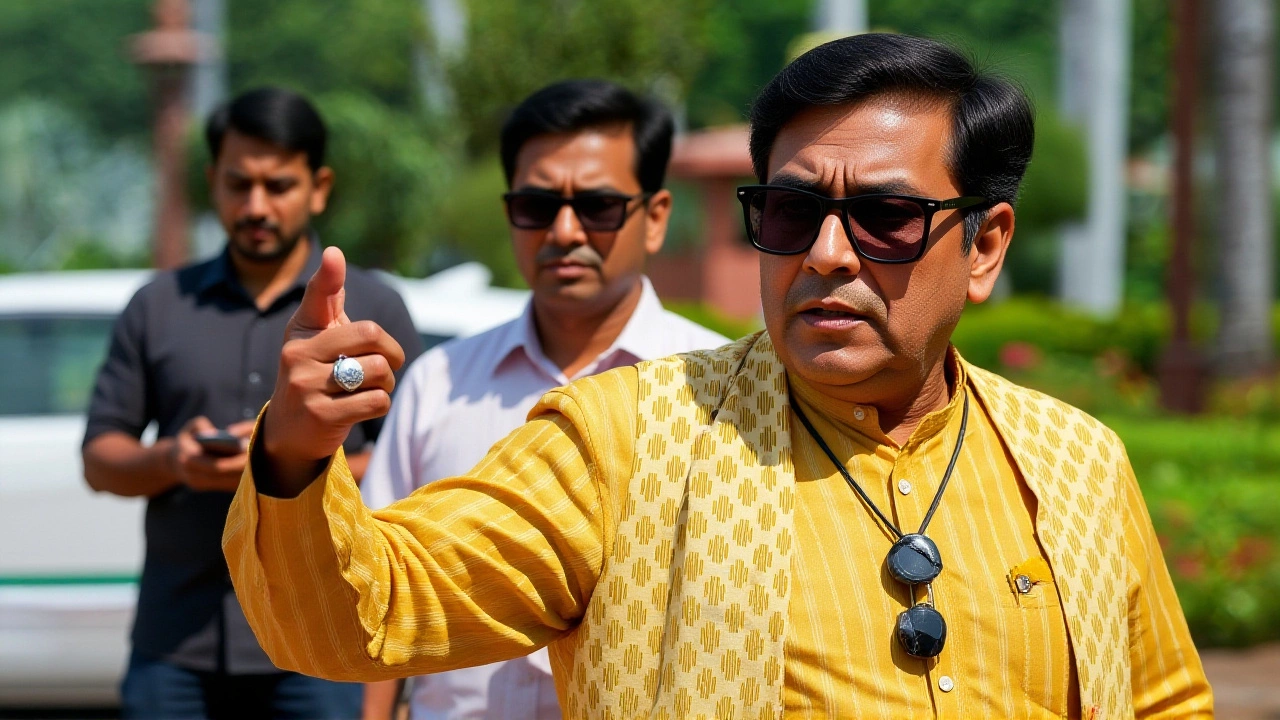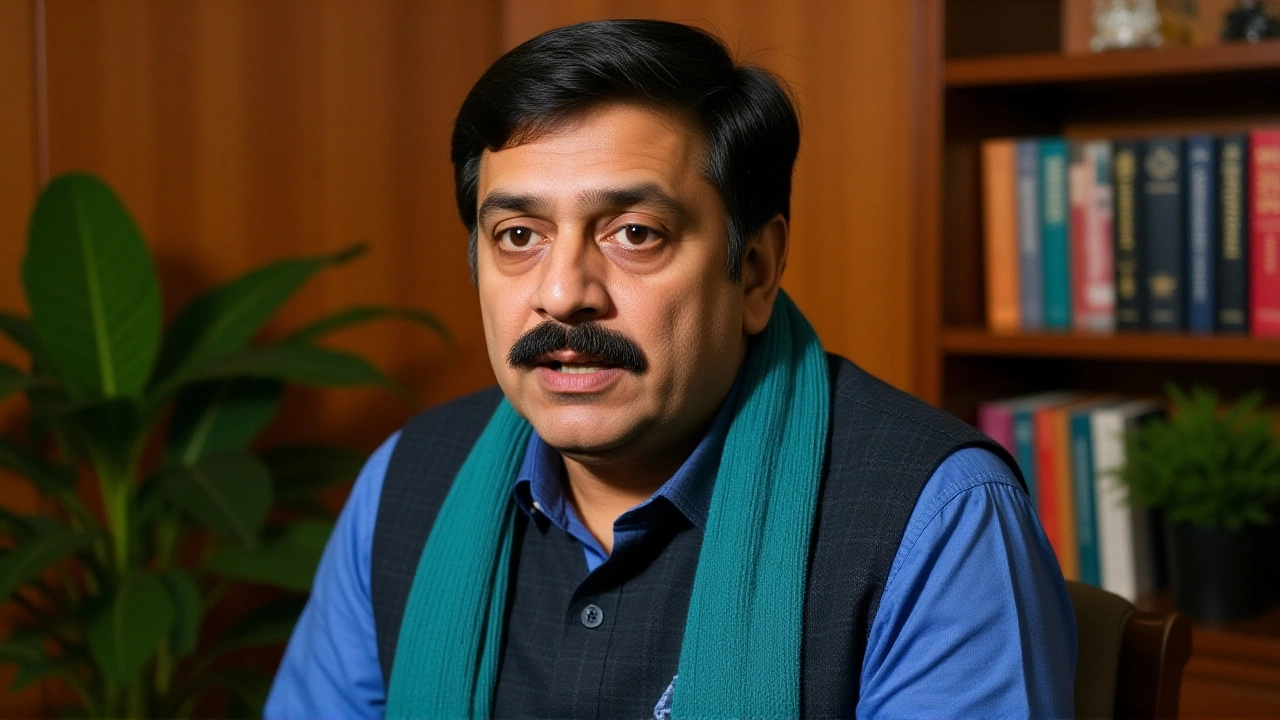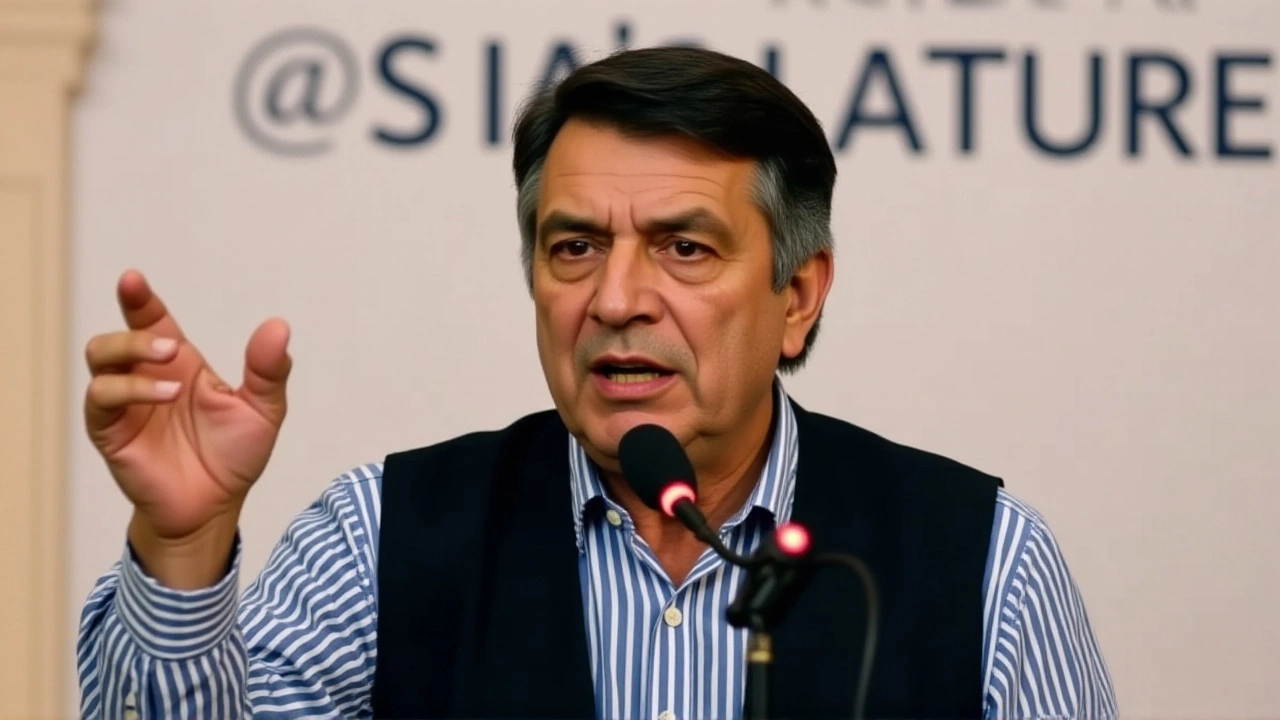Shashi Tharoor warns Bangladesh student‑wing win as ominous sign for India
 Oct, 25 2025
Oct, 25 2025
When Shashi Tharoor, Member of Parliament from Thiruvananthapuram, India posted on X on September 11, 2025, he called the recent win of Islami Chhatra Shibir – the student wing of Jamaat-e-Islami – at Dhaka University a "worrying portent of things to come." The tweet, brief but sharp, landed in the middle of a bruising DUCSU electionDhaka, Bangladesh where the United Students’ Alliance, backed by Shibir, swept every post for the first time since the country’s 1971 liberation.
Why this student poll matters
Dhaka University's Central Students' Union is more than a campus club; it’s a breeding ground for national leaders. Historically, the university championed Bengali nationalism, producing figures who later steered independent Bangladesh. So when an Islamist outfit cracked the long‑standing secular stronghold, observers sensed a tremor that could echo beyond campus walls.
Election data released by the university’s poll office showed Shibir‑aligned candidates secured 82% of the total votes, with a turnout of 68,000 – a record high for a student election in the nation. The victory wasn’t just numbers; it was a symbolic shift away from the two dominant parties: the Awami League led – until recently – by exiled former Prime Minister Sheikh Hasina, and the Bangladesh Nationalist Party under veteran Khaleda Zia. Both parties are mired in corruption scandals and, in the case of the Awami League, a ban imposed after a student‑led uprising toppled its government.
Tharoor’s alarm and the backlash
Tharoor wrote, "This may have registered as barely a blip on most Indian minds, but it is a worrying portent of things to come." He later clarified, "I’m not praising Jamaat – I’m warning about a possible future where a neighbour hosts a government hostile to India’s minorities." The wording sparked a rapid fire of responses.
On September 12, the MP replied to critics on X, "If calling something a ‘worrying sign’ counts as praise, then English is not what it used to be when I learned it." The tone was defiant, yet the underlying fear was palpable: a Jamaat‑led government next door could jeopardise the safety of Hindus in Bangladesh and tilt regional power balances.
Bangladeshi student activist Meghmallar Bosu fired back on Facebook, accusing Tharoor of "a PR campaign for Jamaat" and saying, "India’s interference only fuels the far right here." Bosu, who ran for General Secretary under the progressive "Force of Resistance" panel, argued that Indian commentary unintentionally legitimises the very group it denounces.
Regional ripple effects
Tharoor didn’t stop at Bangladesh. He linked the Dhaka result to youth unrest simmering across South Asia – Nepal’s Gen‑Z protests that toppled the government after a social‑media ban, and Sri Lanka’s anti‑establishment rallies that have been raging since 2024. In a September 14 opinion piece for NDTV, he warned, "How will this play out in the Feb 2026 general elections? Will New Delhi be dealing with a Jamaat majority next door?"
Indeed, Bangladesh’s interim administration, now helmed by Nobel laureate Muhammad Yunus, is trying to steer a fragile transition. Analysts say the power vacuum left by the Awami League’s ban has opened a door for fringe parties to appeal to disenfranchised youths craving "clean" alternatives, even if those alternatives carry an Islamist pedigree.

Political undercurrents in India
Back in Kerala, the Congress party – of which Tharoor is a senior figure – is eyeing the upcoming local‑body and assembly polls. The party has found an unlikely ally in the Welfare Party, a regional offshoot of Jamaat‑e‑Islami. The New Indian Express reported on September 14 that Tharoor’s comments may also be a veiled critique of this home‑grown coalition, which some fear could mirror the Dhaka scenario at the state level.
Experts from the Institute for Defence Studies note that a Jamaat‑friendly government in Bangladesh could recalibrate border security protocols, potentially restricting cross‑border trade that fuels livelihoods in West Bengal and Assam. "If Bangladesh leans further right, we could see tighter surveillance on rivers that have historically been lifelines for Indian fishermen," says security analyst Arun Joshi.
What lies ahead
The February 2026 Bangladeshi general election looms large. Pollsters estimate that Jamaat‑e‑Islami could capture up to 12% of parliamentary seats if the current anti‑establishment wave holds. That figure sounds modest, but in a fragmented parliament, even a small bloc can become king‑maker.
Meanwhile, Indian policymakers are reportedly drafting contingency plans – from diplomatic outreach to Bangladesh’s interim government to intelligence‑sharing protocols aimed at pre‑empting communal violence. The Ministry of External Affairs has yet to release an official statement, but insiders say a "talks‑on‑talks" agenda is already on the table.
For Dhaka University students, the DUCSU win is both victory and warning. As Bosu lamented, "We want change, but not at the cost of our own nation’s secular fabric." Whether that change leads to a more inclusive politics or deepens sectarian divides remains to be seen.

Background deep dive: Jamaat‑e‑Islami’s journey
Founded in 1941, Jamaat‑e‑Islami was a major force in East Pakistan, advocating for an Islamic state. After Bangladesh’s independence, the party was banned for its role in the 1971 war crimes, only to re‑emerge in the 1990s under a legal veil. Its student wing, Shibir, remained marginal on campuses until the early 2000s, when it began mobilising against perceived corruption in the Awami League and BNP.
Academic Dr. Saifuddin Ahmed of the University of Dhaka notes, "Shibir’s appeal lies in its disciplined cadre system and its promise of moral clarity, something young voters crave amid endless scandals." The recent DUCSU sweep is thus the culmination of two decades of grassroots work, not a sudden overnight miracle.
Frequently Asked Questions
How might the DUCSU election affect Bangladesh’s February 2026 general election?
The student‑wing victory signals growing public disenchantment with the Awami League and BNP. If this anti‑establishment sentiment translates to the national ballot, Jamaat‑e‑Islami could secure a parliamentary foothold, potentially becoming a swing bloc in a fragmented legislature.
Why did Shashi Tharoor frame the result as a "portent of things to come"?
Tharoor sees the win as an early indicator of a broader regional shift: youth rejecting traditional parties and gravitating toward alternatives that promise clean governance, even if those alternatives carry an Islamist label. He fears this could reshape India’s security calculus, especially concerning minorities in neighboring Bangladesh.
What are the main concerns of Bangladeshi Hindus regarding a potential Jamaat‑e‑Islami rise?
Historical tensions between Jamaat‑e‑Islami and the Hindu minority, including past involvement in anti‑Hindu violence, make many fear that a Jamaat‑led government could adopt policies that marginalise or even target Hindu communities, threatening their safety and cultural rights.
How is the situation in Bangladesh linked to protests in Nepal and Sri Lanka?
All three countries are witnessing a surge of Gen‑Z activism against entrenched political elites. In Nepal, a social‑media ban sparked massive street protests; in Sri Lanka, economic hardship fuels anti‑government rallies. Bangladesh’s student vote reflects the same desire for fresh, corruption‑free leadership.
What steps is the Indian government reportedly taking after Tharoor’s comments?
Sources say New Delhi is bolstering diplomatic channels with the interim Bangladeshi administration, revisiting border‑security protocols, and coordinating with intelligence agencies to monitor any rise in communal tensions that could affect Indian minorities near the border.